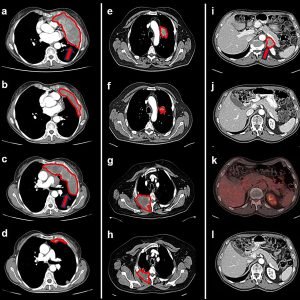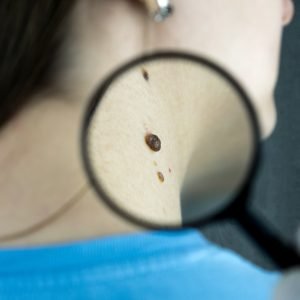Pharmaceutical company Roche announced the expansion of its digital pathology open environment by integrating more than 20 advanced artificial intelligence algorithms from eight new collaborators.
The alliances aim to support pathologists and scientists in cancer research and diagnosis by leveraging AI.
The pharma giant will integrate the third-party AI tools into its navify Digital Pathology enterprise software, an application designed to improve pathologists’ workflow that includes a disparate range of AI-driven algorithms.
The AI was created to improve pathology insights to benefit cancer patients through precision medicine and allow targeted treatments.
Roche’s collaborators include:
Dr. Eve Cunningham, chief of virtual care and digital health at Providence, discusses clinician response to AI, promoting education and engagement within the healthcare workforce and how AI can help providers stay current on patient care.
-
Deep Bio, a company that creates algorithms for prostate cancer detection
-
DiaDeep, which develops algorithms for breast cancer biomarker quantification
-
Lunit develops tumor proportion score analysis for non-small cell lung cancer
-
Mindpeak, which provides algorithms for breast biomarkers and pan-tumor PD-L1 for lung and other cancers
-
Owkin creates algorithms for the screening of microsatellite stability in colorectal cancer
-
Qritive, a platform that produces algorithms for screening and grading prostate cancer, lymph nodes for metastasis, and screening for colon cancer
-
Sonrai Analytics algorithms used for determining microsatellite instability status in colorectal cancer
-
Stratipath, which creates algorithms for risk profiling of invasive breast cancer
“We are excited to welcome these new collaborators into our digital pathology ecosystem,” Jill German, head of pathology lab for Roche Diagnostics, said in a statement.
“By combining our leadership in tissue diagnostics with a broad offering of state-of-the-art AI technology, we aim to revolutionize cancer research, diagnostics and treatment, ultimately helping clinicians improve the lives of patients worldwide.”
THE LARGER TREND
This month, Roche announced the opening of its new Pharma Research and Early Development (pRED) Center at its global headquarters in Basel, Switzerland. The center brings together teams of scientists and researchers to accelerate scientific discoveries for patients.
In August, Roche joined forces with diabetes and insulin management software company Glytec to allow the use of Glytec’s software in connection with Roche’s point-of-care smart-device hospital blood glucose system cobas pulse in the U.S. and global markets.
In January, diagnostics company LumiraDx signed an agreement to sell its point-of-care technology to Roche for $295 million, with an additional payment of $55 million to fund the platform until the acquisition closes.
Last year, health technology company PicnicHealth partnered with Roche subsidiary Genentech to speed up neurological disease research through investments in real-world data. PicnicHealth enables patients to see their health history and contribute their de-identified medical data to clinical research.








